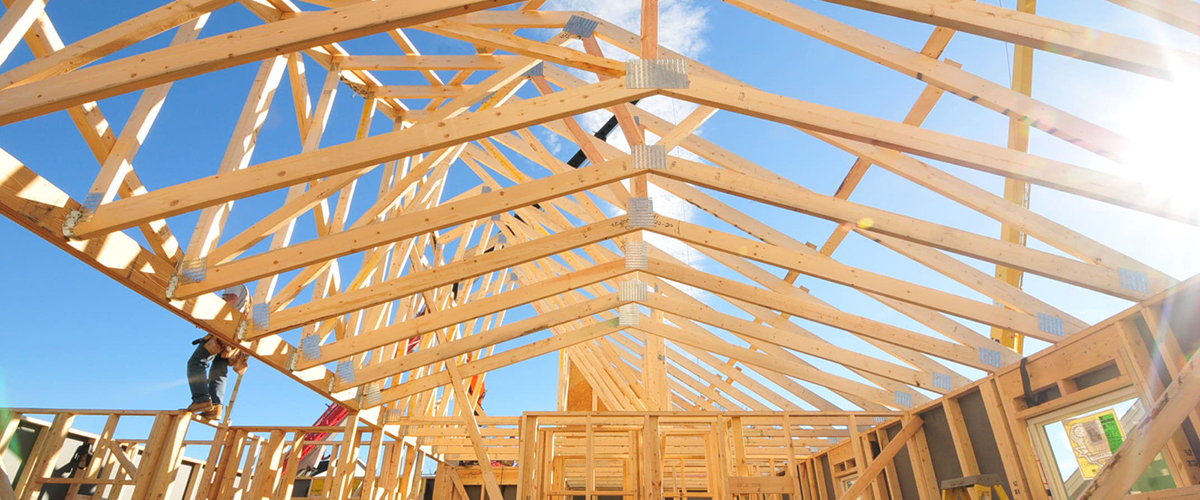Home Builders Applaud Additional $4.5B in Fed Funding Bill
Originally Published by: NAHB — December 23, 2022
SBCA appreciates your input; please email us if you have any comments or corrections to this article.
Congress has approved a $1.72 trillion spending bill that will fund the government through fiscal 2023, which ends on Sept. 30, 2023. Of note to the housing community, the measure includes a total of $58.2 billion for the U.S. Department of Housing and Urban Development, an increase of $4.5 billion above fiscal year 2022.

Key Funding Levels
The HUD spending includes:
- $85 million for a new "Yes In My Backyard" (YIMBY) grant program championed by NAHB that will incentivize affordable housing production. The new competitive YIMBY grant program will reward state, local and regional jurisdictions that have made progress in improving inclusionary zoning practices, land use policies and housing infrastructure that will ultimately increase the supply of affordable housing.
- $30.3 billion for Tenant-based Rental Assistance to continue to serve more than 2.3 million very low- and extremely low-income households nationwide. This level of funding also includes $50 million to expand housing assistance to nearly 12,000 low-income families.
- $14.9 billion for Project-based Rental Assistance to continue to house more than 1.2 million very low- and low-income households nationwide, an increase of $967 million above fiscal year 2022.
- $1.5 billion for the HOME Investment Partnerships Program, which will lead to the construction of thousands of new rental and home buyer units and sustain the record level of investment from fiscal year 2022.
- $12.3 billion for Community Planning and Development, an increase of $2.3 billion above fiscal year 2022, including $3.3 billion for Community Development Block Grants.
The Department of Labor funding also includes:
- $2.9 billion for Workforce Innovation and Opportunity Act State Grants, an increase of $50 million above the fiscal year 2022 enacted level.
- $285 million for Registered Apprenticeships, an increase of $50 million above the fiscal year 2022 enacted level.
- $105 million for YouthBuild, an increase of $6 million above the fiscal year 2022 enacted level.
- $1.76 billion for Job Corps, an increase of $12 million above the fiscal year 2022 enacted level.
Flood Insurance Extended
The spending bill also means that the National Flood Insurance Program (NFIP) will be extended through Sept. 30, 2023. NAHB continues to work with Congress to achieve a long-term reauthorization of the NFIP that will keep the program fiscally sound and let builders provide safe and affordable housing.
A Wetlands Permitting Victory
Through the efforts of NAHB and Virginia’s state and local HBAs, the Energy and Water section of the massive appropriations bill includes two provisions focused on identifying and addressing longstanding federal wetland permitting delays NAHB members are experiencing with the U.S. Army of Corps of Engineers (Corps).
First, Congress directed the Corps leadership to issue a report within three months that quantifies the permit backlogs and Corps permit writer staffing shortages across all Corps districts offices. Second, Congress provided an additional $8 million to the Corps Regulatory Program to put toward addressing staffing shortages.
Taken together, these two measures should quantify and begin to address longstanding wetland permitting delays experienced by NAHB's members.
A Win on H-2B Visas
In a victory for NAHB, we were able to omit a provision from being included in the massive spending bill that would have targeted the multifamily and commercial construction sectors for exclusion from the H-2B program.
H-2B visas allow employers to hire foreign workers who come temporarily to the United States and perform temporary non-agricultural services or labor — including construction work — on a one-time, seasonal, peak-load or intermittent basis.
NAHB told lawmakers that such a move would "ultimately exacerbate the affordable housing problems already ravaging the market" and that "further hindering the ability of the multifamily industry to find workers to supplement the U.S. workforce stands to harm thousands of American families."
Smoke Detector Concerns
Of concern to NAHB, the spending package includes a bill that forces compliance with the National Fire Protection Association (NFPA) 72, which requires using a 10-year, non-rechargeable, sealed battery smoke detector in federally assisted housing units.
According to NFPA, there is no smoke alarm capable of emitting the low frequency 520 Hz required by the NFPA 72 to notify persons with hearing loss. Furthermore, the bill's hearing loss provisions are overly broad and will require the unnecessary installation of equipment in all federally assisted housing instead of focusing efforts on solutions for occupants actually experiencing hearing loss.
NAHB will work with the new Congress to seek cost-effective and feasible solutions to allow for flexibilities regarding compliance with NFPA 72 while still providing suitable notifications for persons with hearing loss.
